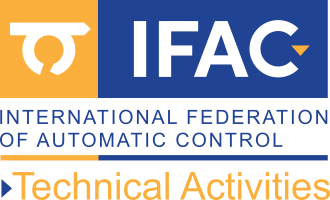SYROCO 2012
The 10th IFAC Symposium on Robot Control (SYROCO 2012) was held in Dubrovnik, Croatia, from 5 to 7 September 2012. It was organized by the Croatian Society for Communications, Computing, Electronics, Measurement and Control – KoREMA (http://www.korema.hr/) and the Centre of Research Excellence for Advanced Cooperative Systems – ACROSS (http://across.fer.unizg.hr). SYROCO 2012 was sponsored by the IFAC Technical Committee on Robotics (TC 4.3) and co-sponsored by the IFAC Technical Committee on Mechatronic Systems (TC 4.2), and the IFAC Technical Committee on Control Design (TC 2.1) as well as the Ministry of Science, Education and Sports of the Republic of Croatia and the University of Zagreb, Faculty of Electrical Engineering and Computing.
SYROCO is held every three years since 1985 allowing researchers to become acquainted with the latest accomplishments and innovations in advanced control of robotic systems. Robot control technology is widely used for space, surgery, rehabilitation, micro machine, entertainment, underwater, civil engineering, professional and domestic services, security etc. As the robot control technology will continue to play an increasing role in the areas of robot-robot and human-robot cooperation in various dynamic scenarios, "Robot Control in Dynamic Cooperative Scenarios" was chosen as the primary topic for the SYROCO 2012.
In our view, 145 accepted and presented papers, authored by 376 authors from 34 countries (selected from a submission pool of 186 papers authored by 443 authors from 39 countries), are a testimony to an increasing appeal of the symposium. Each paper was evaluated by two independent expert reviewers and by a member of the International Program Committee (IPC) or National Organising Committee (NOC). SYROCO 2012 was supported by a large IPC with 64 members from 22 countries. The SYROCO 2012 technical program was divided into twenty three regular oral sessions and five invited sessions, which were arranged in four parallel tracks for the three days of the Symposium. Contributions on basic research as well as on relevant applications were included in the technical program. These contributions covered wide range of topics related to robot control technology, and provided an accurate picture of the state of the field at the present time. The ten most common keywords were: Mobile robots and vehicles, Robot control (adaptive, robust, learning), Sensory based robot control, Modeling and identification, Humanoid robot, Multi cooperative robot control, Force and compliance control, Telemanipulation, Professional and domestic services and Networked robots.
The technical program of the Symposium also included four invited plenary lectures given by distinguished professors. The first one, entitled “Probabilistic Techniques for Mobile Robot Navigation” presented by Professor Wolfram Burgard (University of Freiburg, Germany) outlined major challenges of probabilistic approaches as the most powerful approaches to highly relevant problems in mobile robotics including robot state estimation and localization. The second lecture “New Directions of iSpaces in Cognitive Info-Communication and Personal Mobility based on Robotics” presented by Professor Hideki Hashimoto (Chuo University, Japan) described the concept of Intelligent Spaces which have functions of understanding environments by networking sensors and serving people by using Mechatoronics/Robotics devices. The third lecture “Human-Centered Robotics” given by Professor Oussama Khatib (Stanford University, USA) focussed on the ongoing effort to develop human-centred robotic systems that combine the essential characteristics of safety, interactivity, and performance with emphasis on (i) human-friendly design concepts and novel sensing modalities; (ii) compliant whole-body control strategies; and (iii) human-inspired behaviours through synthesis of human motion and skills. The forth lecture “Active Vision for Object Manipulation” presented by Professor Danica Kragić (Royal Institute of Technology - KTH, Sweden) addressed some of the most important challenges and outlined some of the results of her long-term work in the area of vision based sensing and control. Moreover, a special plenary session from industry was scheduled on September 6, 2012, where three companies (Dok-Ing, Ltd. and HSTec, Inc. from Croatia and PPM AS from Norway) presented their research and development activities related to robotics.
To conclude, it can be said that the 10th IFAC Symposium on Robot Control (SYROCO 2012) had a very high level of attendance (170 participants from 31 countries), with a very active participation in technical activities and the general feeling we got from attendees’ comments has been very positive. The participants appreciated the technical program as well as the social one and were very happy with the quality of the presentations and the friendly atmosphere. Of course, the success of the SYROCO 2012 is the result of the effort of many people. On behalf of the NOC and IPC, we would like to thank all the authors, IPC members, NOC members, reviewers, and participants for their contributions, and also the session chairs and co-chairs for conducting the technical sessions and providing valuable feedback on their development. We are also grateful to the volunteers who contributed to the organization.
Ivan Petrović, NOC Chair
Péter Korondi, IPC Chair

